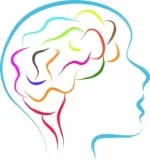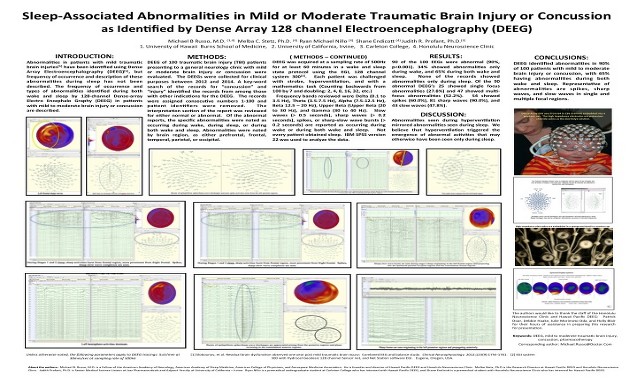PHONE: 808-294-3332 FAX: 808-748-2920 E-MAIL: admin@hawaiipacificdeeg.com
Meet Our Team
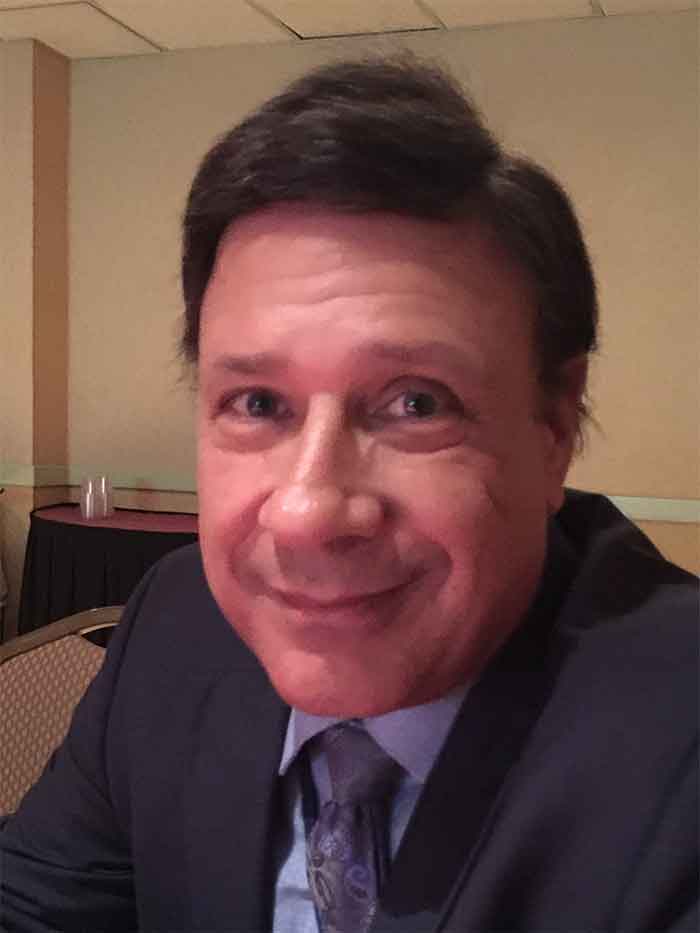
Michael Russo MD, FACP, FAAN, FAASM,FAsMA
He trained in Neurology at New York University’s Bellevue Medical Center, at the Manhattan Veteran’s Hospital, at the National Institutes of Health Intramural Epilepsy Program, and at the Hospital For Neurology and Neurosurgery at Queens Square, London, England.
He trained in Sleep Disorders Medicine at the Walter Reed Army Institute of Research. His 34 years in the United States Army trained him to treat each patient as his brother, son, daughter, mother, or father.
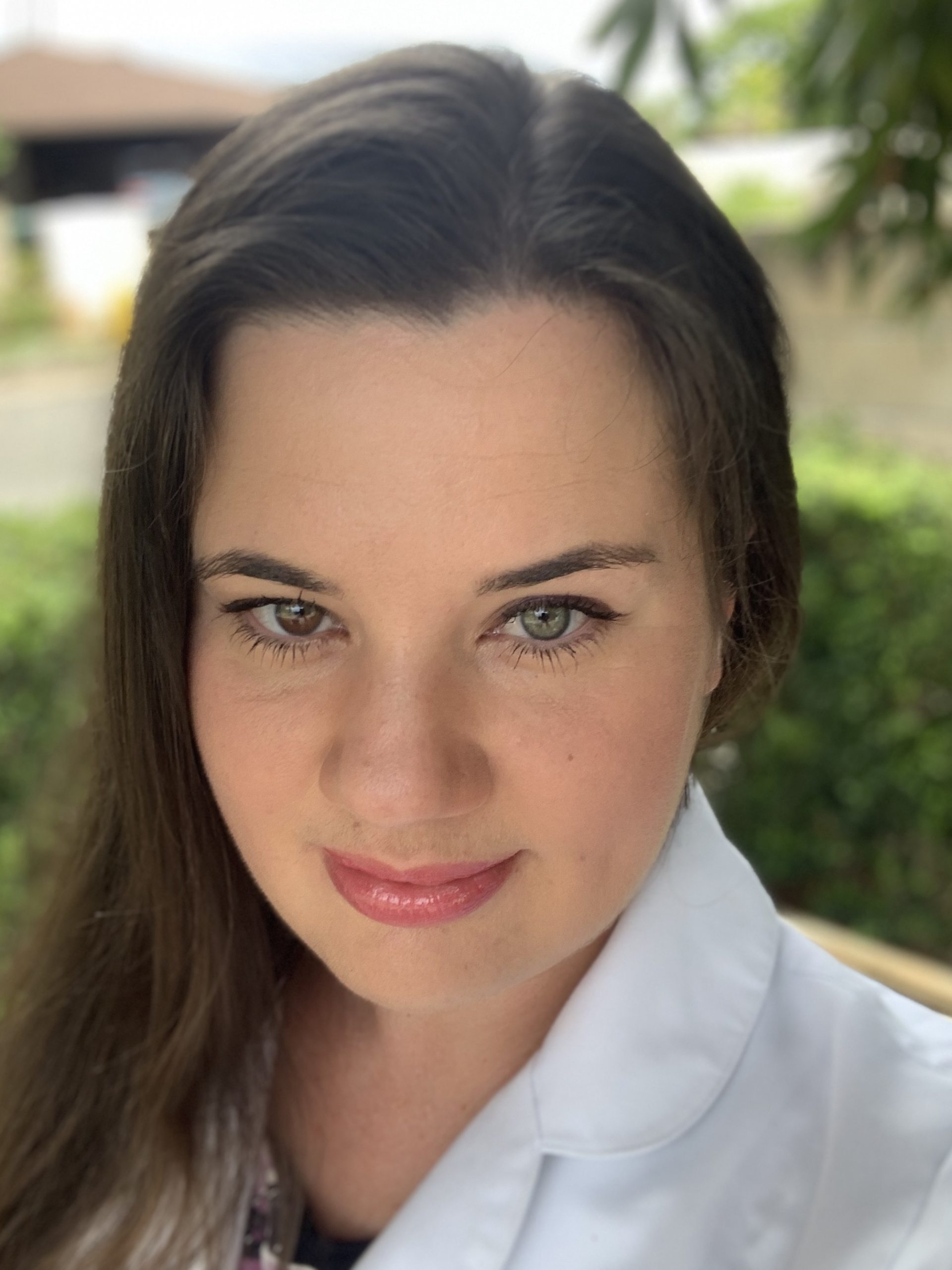
Nataliia T. Russo, MD.
Nataliya Tkachenko Russo was awarded her Doctor of Medicine with Highest Honors from Dnipropetrovsk State Medical Academy (Ukraine), specialized in Pediatrics, and was appointed Assistant Professor for International Student Education. She accepted a Fulbright Faculty Development Scholarship in 2014 and studied at New York University Langone Medical Center Department of Neurology’s Pediatric Sleep Medicine program. In 2015 Nataliya transferred to Hawaii where she is CEO of Honolulu Neuroscience Clinic. She has over 30 peer-reviewed research papers and abstracts published in three languages.
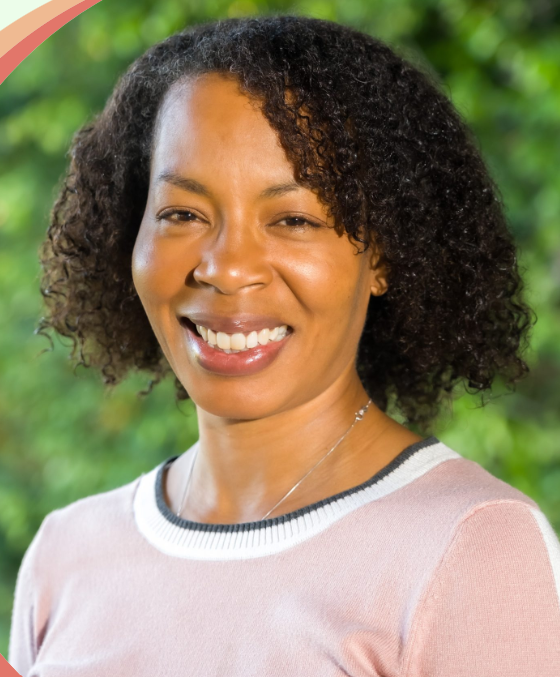
LaRae Barnes, MSN, APRN, CNC
LaRae has over 20 years of healthcare experience. She graduated magna cum laude with a Bachelor of Arts in Sociology from the College of Wooster with a minor in Spanish. After enjoying a life of budget travel extending from the Caribbean to Alaska and Antarctica, she decided to pursue a nursing degree. She graduated with honors from Central Oregon Community College in 2003 and was recognized with their Distinguished Student Award. Her nursing career began in long-term care, outpatient care including urgent care, pediatrics and women’s health. As a registered nurse she worked as an ICU and recovery room nurse for 10 years in a level-1 trauma teaching hospital in Tucson, AZ eventually training staff, working as charge nurse, and in hospital administration before pursuing her long-term goal of becoming a Nurse Practitioner.
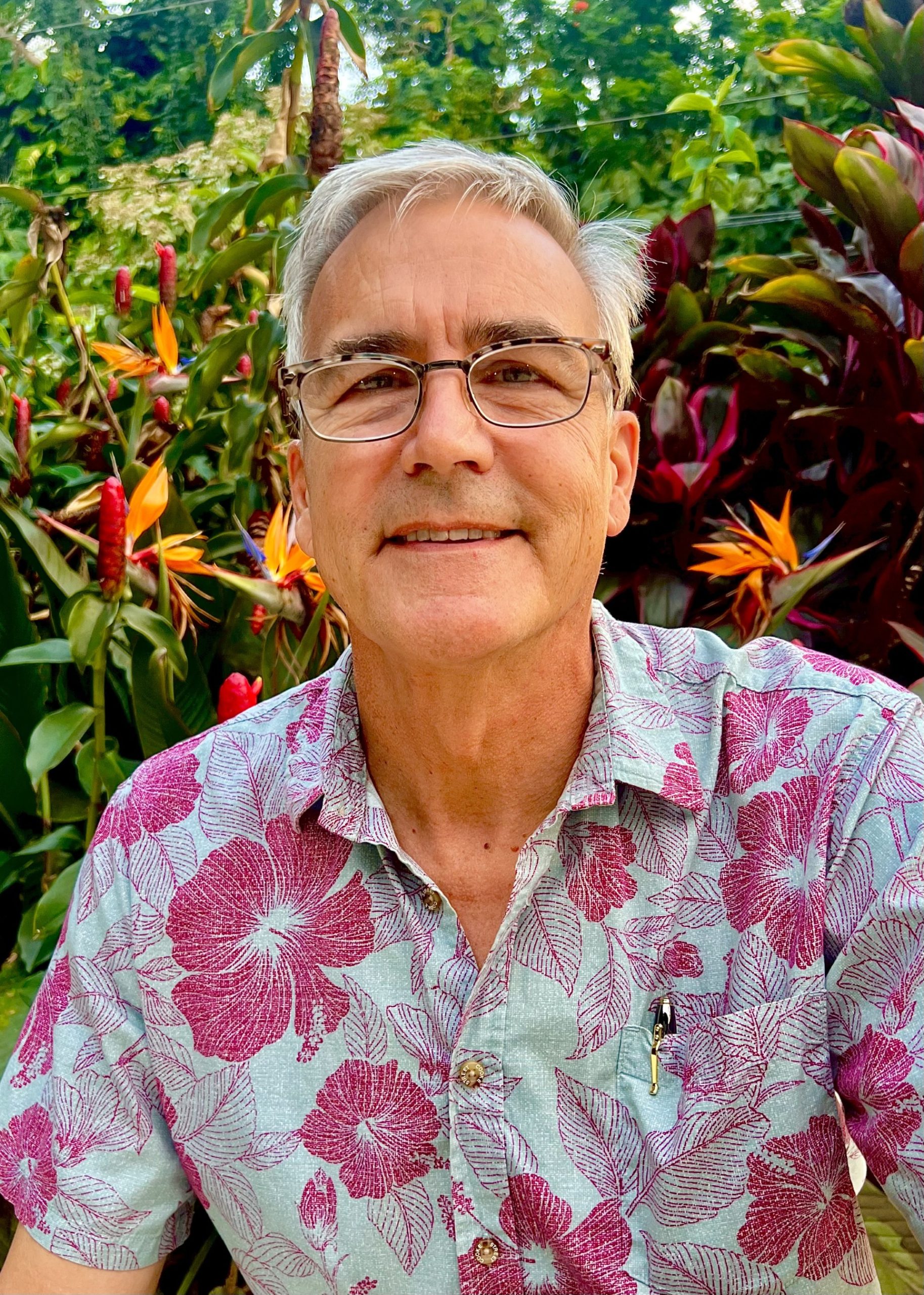
Mark Schultz, APRN
Mark Schultz received his Masters in Nursing at University of British Columbia, Vancouver after graduating Magna Cum Laude from University of Alaska in Anchorage. He has been a Family Nurse Practitioner since 2008 and has practiced in Hawaii, Alaska, and British Columbia. He specialized in rural primary and emergency care for many years in Alaska, most recently at the Yakutat Community Health Center, as well as primary care on the Big Island with Island Health in Keaau. Mr. Schultz, after a number years of interest in sleep medicine, completed the American Academy of Sleep Medicine Course in Primary Care Sleep Medicine for APRN’s in 2024, and now sees patients at Honolulu Neuroscience Clinic, Hilo Location. He is pleased to continue his families contributions to the health of the Hawaiian community along side his great aunt who worked as a nurse at Kalaupapa in the 1930’s and his grandfather who was a surgeon on the Raleigh in Pearl Harbor on Dec 7th, and after retirement worked at the Pearl Harbor Base ER into the 1970s.
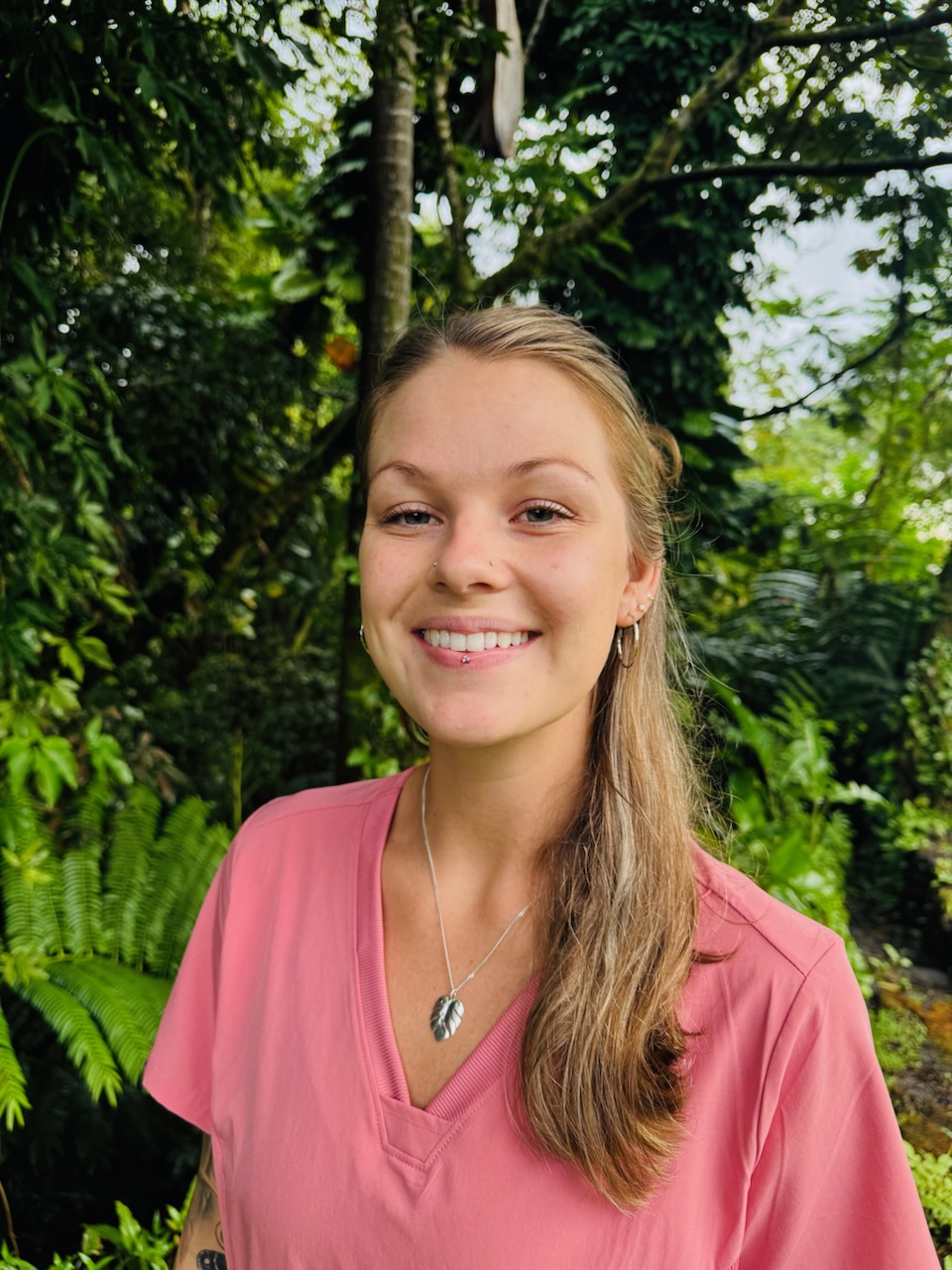
Lindsay
Hilo Location
Assistant Practice Manager
DEEG/Video Ambulatory Tech
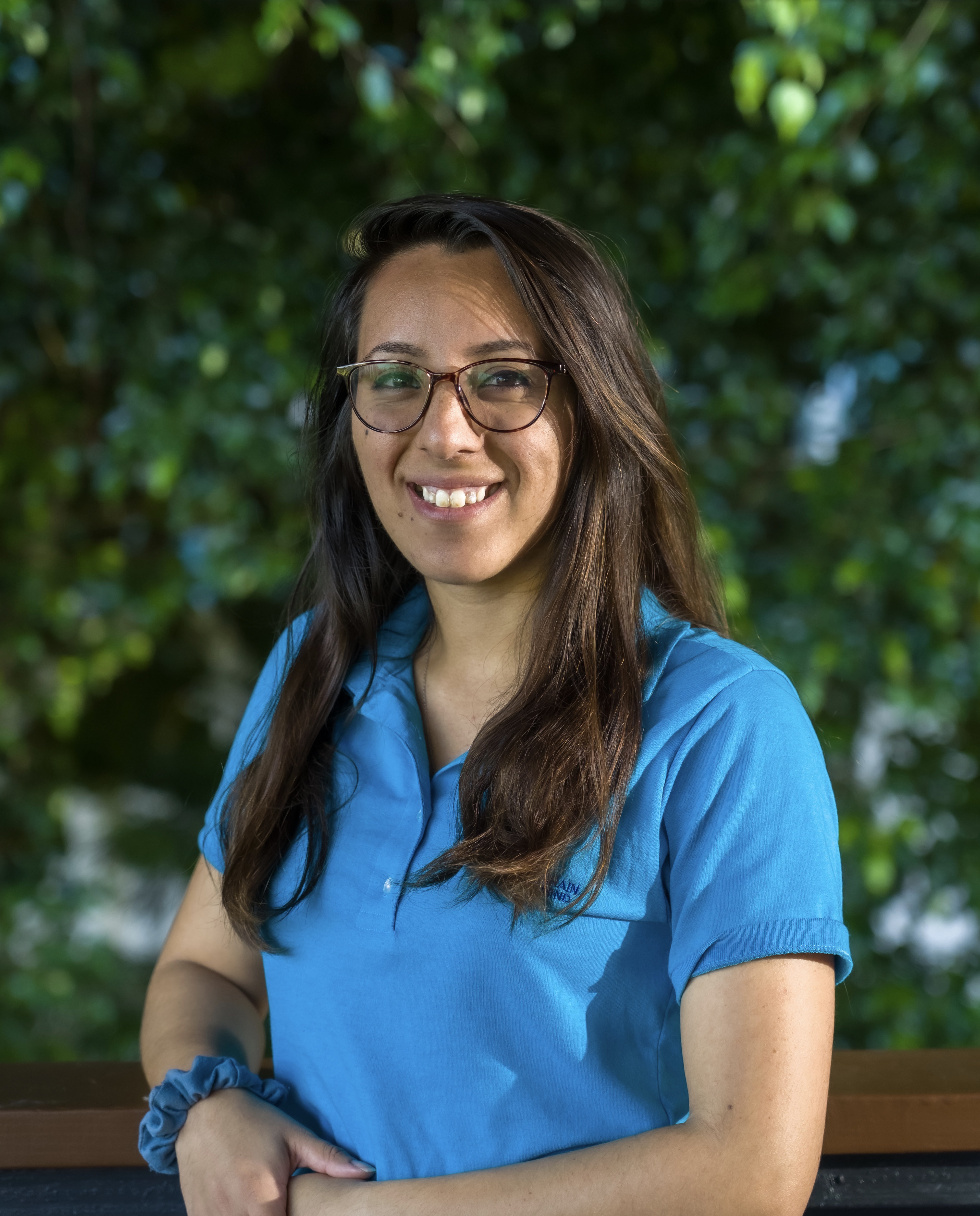
Ray
Medical Records & Scheduling

Jenn S.
Hilo Location
Referrals & Billing

Kristen
Honolulu Location Manager
CCMA

Kenesha
Medical Records

Jenn N.
PharmD
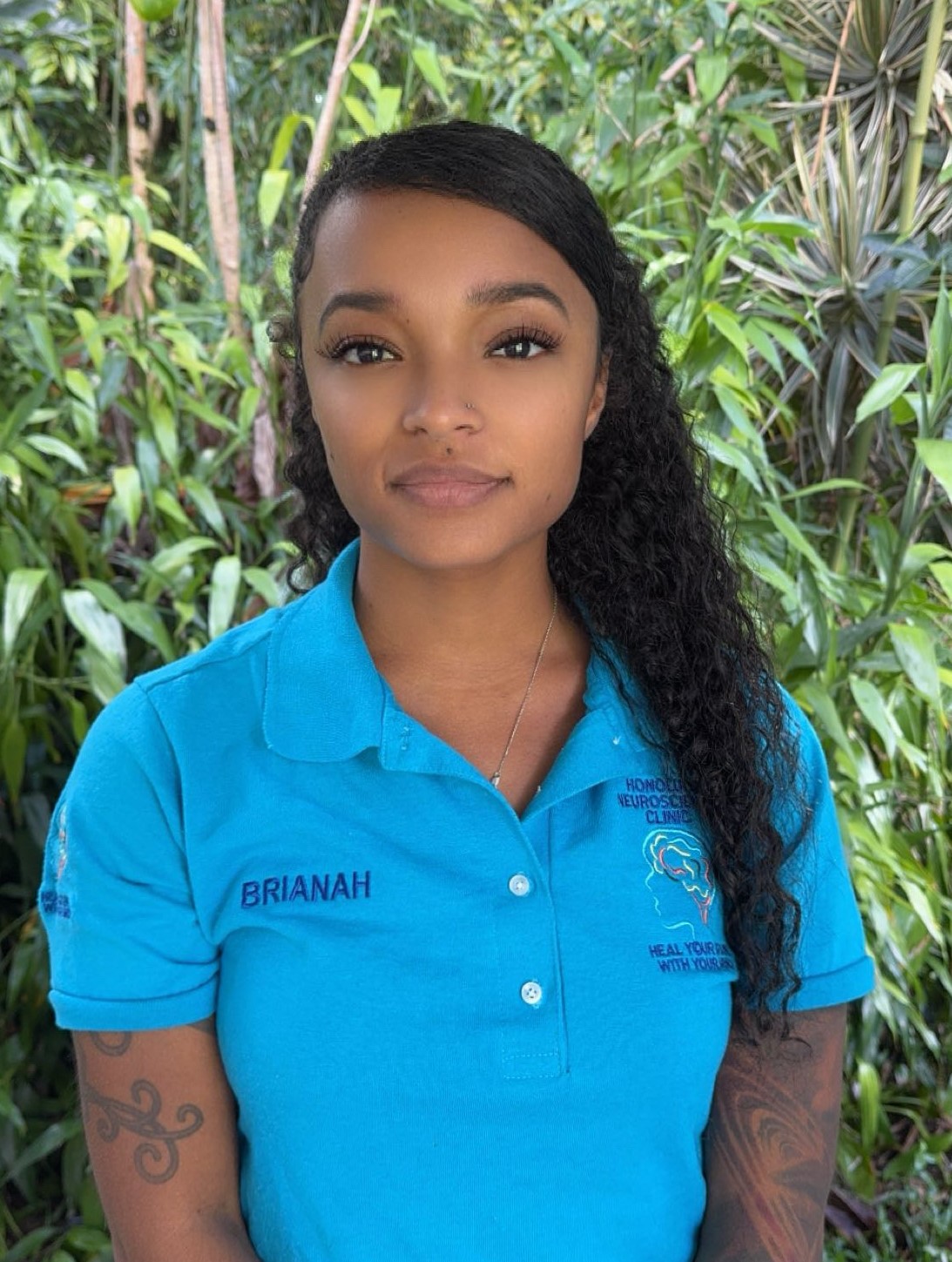
Brianah
Hilo Location
Patient Stories and Testimonials
Kevin Y
Edward T
Benjamin
Alfred P
Shareen
Anthony K
Jim N.
When did he become injured? I believe that with injuries in the brain it is not always easy to pinpoint an exact date and time of an injury and would have to say this is true with my husband.
He in 1997-1998 served in what was Bosnia where not only did he witness great atrocities that would continue to play in his mind even until today, but he was exposed to frequent and semi-regular mortar attacks that would shake the ground and all who stood on it. He later served in Iraq where in 2007 he was one of many who were in the blast zone of a rocket missile that was targeted into the military camp.
During this episode he was knocked unconscious for a time. When he came too, he did not seek medical attention as he probably should because of his “old school soldier” attitude, he was moving and above ground so he needed to help others around him that were injured with visible injuries, that were trying to get debris of them, that needed consoling, etc.
When he returned from Bosnia, he had a hard time sleeping, was angry at little things and little things would become big issues, he would relive nightly different missions and things he had seen, even acting out those nightmares that cumulated with me waking to being strangled by my sleeping husband.
I have to make clear here, he was sound asleep and was terrified when I could get him awake that he might hurt me or our children. We did try to seek help, at the time we were advised that I had better stop talking and my husband should drop it or it would destroy his career. We stupidly listened and tried to cope with the new normal.
He within a year of returning from Bosnia was sent on an unaccompanied tour and he began to have more symptoms of something being wrong. It was hard being on the other side of the world to see your spouse falling apart. The changes became more and more pronounced, he was behaving and acting in ways that just were not him, almost the complete opposite.
I on more than one occasion contacted people from the chaplain to people in his command that something was wrong. At this point I was again warned I would destroy his career and my husband was lead to believe that was what I was doing and that perhaps I was not military spouse material.
We separated for a time and the changes were still active in his life but at this point I was looked at as the overly zealous soon to be divorced woman and was ignored. We after about 3 years brought our family back together, and by this time we were used to the “new normal” and the angry outburst and nightmares were nothing like they had been when he first came home from Bosnia.
When he arrived back home the middle of 2008 from Iraq there were changes, but the military now teaches families, almost drills it in to our heads, that soldiers will come back from deployments changed.
They offer and provide reunification classes that are again to remind us that we have changed and they have changed during the deployments and that we can and should expect changes in behavior, in emotions, in us wanting to maintain what we have set up for the our homes, etc. Also history had shown the girls and I that Daddy when he comes back was different for a while but this time there were many differences.
Our two grandchildren were living with us, the girls themselves were now older could now see what I had tried to shield them from. He on the outside bore no wounds, didn’t walk with a limp, no scars, but he had many unseen wounds and scars. We gave him space initially hoping he would soon bounce back.
He would have nightmares, was hypervigilant, he would hold up in our master bedroom to the point of bringing the TV and computer in there something he had always refused to allow. If the grandchildren squealed something that used to bring smiles made him run for cover and left them wondering what the matter with Grampie was.
He also was having memory issues that we brushed aside as he just wasn’t hearing us. He would at times laugh at things that just were not laughable but he would catch our looks and walk away.
As we moved on he did not “bounce back”. His hearing was worse, they did hearing exams and MRIs , discovering his hearing was significantly changed from before Iraq to after, but they gave him stronger hearing aids and blamed the ringing in his ears on the hearing loss.
They also began to blame the hearing loss for his memory changes. “I didn’t hear you” became a frequent response, though he might have at the time been able to repeat what had been said but a few minutes later couldn’t recall the conversation. We also started hearing “I’m thinking” to questions that required no thought.
He was having frequent headaches that would knock him out for hours at a time. They would blame on his blood pressure being elevated, but we noted that the headaches still where happening when his blood pressure was “normal”.
He was super sensitive to loud noise, seemed to always be tired regardless of how much sleep he got, nothing seemed to make him happy even things that before had brought joy to him, he would repeat things over and over and began to have to have a regular routine or the world was coming to an end.
His symptoms could take hours to list but he had no rhythm or reason to his moods, one day he would sleep all day the next bouncing of the walls, would speak without thought of who or what he was saying or how it would be perceived, he would be extremely aggressive and short fused, uncharacteristically lewd, seemed to lose all sense of social grace and at times military bearing and this is but a partial listing.
I think what kept us from realizing how bad he was and the amount of trouble he was having was his military bearing.
We sought help for the symptoms individually, not knowing what the matter was but even with treatment for those individual symptoms he still was having problems. He recognized at times he was having trouble and that he was behaving in ways that were not his normal and this upset him more.
He even began to question his faith and all that he once held dear. Being that we are a military family we move frequently and one of the disadvantages of that is that at each new location the medical starts over each time, the system is designed so that should not happen but after so long in the system it does repetitively.
He began trying to hide his symptoms because of fear he’d be told he was going crazy and tried to do what they had previously told us to do to help. While at the new duty station overseas, his nightmares became worse and he again began to act them out, on many occasions I would wake to him over me strangling me. For that matter many of the symptoms became worse, trying to hide them only seemed to bring them out.
Yes, hiding was one way of dealing with it because in today’s day and age to say you are being strangled in your sleep and your spouse is having angry outburst, makes people think of domestic violence, so in fear we kept silent for a time.
Though silent I began researching online what was happening and eventually began to talk with his medical provider. I was not completely honest with his medical provider either but tried to get his provider to ask questions that would help him discover what was going on.
In January of 2011 my husband had a heart attack at that point and I also discovered in picking up his meds at the pharmacy while he was TDY that he had not been taking them correctly , we had more of some and less of some than what we should have. This was enough that I began talking with his provider. They did testing there in Japan that eventually led us here to Hawaii in March of 2011.
While he was being tested it was discovered he needed immediate bypass surgery. We both had a big wakeup call, the blockage was enough that the heart attack could have taken his life and that all the symptoms that we had been dealing with needed to be taken care of. Together when we returned to Japan we went to behavioral health where they diagnosed PTSD but still they felt that something was not right.
Eventually because of his heart condition and the PTSD the military moved us to Hawaii to be closer to Tripler and into a unit where my husband’s job was and is to heal. Here in Hawaii he for over a year saw psychiatrist, psychologist, neuropsychologist, audiologist, primary care doctors, physical therapist and it seemed any other –ologist that might have an opinion.
The doctors gave him medicine to help with symptoms, they did MRI’s, CAT’s and PET scans, went to local hospitals for EEG’s and sleep studies, but one symptom would come under control and another would seemingly get worse. Or the treatment would leave him more tired or sleeping at odd times, he no longer is able to drive because he fell asleep at the drop of a hat.
In April/May I was researching online on veteran sites and reading post on Facebook and came across a site that lead me to homecoming4veterans.org that talked about neurofeedback and how it was helping soldiers with PTSD. I had a ray of hope that this might help him, as they were saying PTSD was causing all of what was happening, though all the medical providers he was seeing could not even agree on this diagnosis.
The site listed providers here in Hawaii and after reading the site through and through I went back to Facebook and was saddened to read that active duty where not being able to get coverage to allow for this, even though many of the veterans who had participated were according to their families doing better.
About this time he was referred to a neurologist as he was now stumbling around, blanking out and just having quite a few neurological symptoms. The neurologist at Tripler listened and ordered many test but felt that something was going on with his sleep that was causing a lot of his symptoms so she voiced she was going to refer us out into the civilian sector as she was not specialized in sleep disorders.
Initially she had voiced sending him to one of 3 providers but the more he rambled using military terms she felt that he would do better to go to this one particular neurologist, Dr. Russo. She voiced he would understand the military as he recently retired from the military himself. In the back of my brain I thought that name seemed familiar from the homecoming4veterans.org.
We got authorization from our insurance to see Dr. Russo and scheduled his first appointment in June. From the first appointment, your practice was different. Coming in the first day, it was comfortable, almost like coming into a friend’s house, your office staff and you made us feel at home.
You reviewed a mountain of information and made few recommendations, but it was the second appointment that made a believer in you and your treatment methods. You began treatment for what you believed to be a brain injury and the PTSD using different medications and the neurofeedback.
You were confident enough in your diagnosis but the military’s medical system couldn’t agree because they couldn’t see the damage on the tests that they had done and continued to run. You received your DEEG and we got authorization from Triwest to complete one. The DEEG was able to prove visually the brain deficits and injury that could not be seen otherwise!
Since beginning treatment that was able to be geared more to him because of the DEEG findings. His outbursts have decreased and when they happen now he is able to be redirected. He is able to do more than sit and fixate on an online game. He is being able to sleep better, it is still not a full night but he is at least getting 6 hours of sleep most nights. He has not strangled me in his sleep and is not acting out his dreams like he was.
He is being able to tolerate the noise of toddlers and little children again. He has begun to actively have a relationship with his children and grandchildren again. He still has challenging days but the challenging days are decreasing and there is improvement that providers who questioned the treatment can’t deny and give account for!
To other families I would say, don’t give up! If it doesn’t sound right or seem right it may not be right. Medical providers are human too and they can only tell you what the test they are doing say. They all agreed that something was not right but with what they had available to them they just could not see it.
You are not alone, no matter how alone you feel, there is someone out there that is going through something very similar. If it isn’t in your circle of friends reach out, the internet allows you to talk with people around the world. Be honest, honest with yourself, honest with family or your support people, and honest with your medical providers. Keep your faith and don’t stop, you know your loved one best.”
Publications
Dr. Russo’s extensive experience in the fields of neurology and sleep disorder has led him to write a number of books, articles, and chapters discussing his research. We have a complete bibliography of his works available for your perusal in case you would like to read up on his research.
Dense Array EEG is being used clinically in only a dozen centers in the United States because the technique requires complex equipment and highly specialized training. Dr. Russo is one of the few qualified to use it, and the only Hawaii provider. Get in touch with us today for your service.
Abstracts
Leptomeninges and Cortex of Epileptic Patients Evaluated with Subdural Electrode Arrays.
Epilepsia, Vol. 34, Sup 6 (American Epilepsy Society Annual Meeting)
Russo MB, Brooks F, Dopler B, Neely E, Halliday A. (1996) Vigabatrin in the Long-Term Control of
the Refractory Seizures Associated with Glutaric Aciduria. Abstract published in Epilepsia, Vol.
37, Sup 5 (American Epilepsy Society Annual Meeting)
Russo MB, Brooks F, Dopler B, Neely E, Halliday A. (1996) Vigabatrin in the Treatment of the
Refractory Seizures Associated with Glutaric Aciduria. Proceedings of The 7th International
Cleveland Clinics- Bethel Epilepsy Symposium. Cleveland, OH
Russo MB, M. Thomas, H.Sing et al, (1998) Saccadic Velocity Decreases with Cumulative Partial Sleep
Deprivation and Correlates Negatively with Driving Accidents. Sleep 21:235 April 15 Supplement
(American Academy of Sleep Medicine – APSS meeting)
Johnson D, Thorne D, Rowland L , Balkin T…. Russo M…(1998) The Effects of Partial Sleep
Deprivation On Psychomotor Vigilance Sleep 21:236 April 15 Supplement (American Academy of Sleep
Medicine – APSS meeting)
Belenky G, Wesensten N, Thorne D, Sing H, Thomas M, Russo M… (1998) Chronic Partial Sleep
Deprivation – Effects on Daytime Sleepiness Sleep 21:236 April 15 Supplement (American Academy
of Sleep Medicine – APSS meeting)
Thorne D, Thomas M, Sing H, Balkin T, Wesensten N, ….Russo M… (1998) Driving Simulator Accident
Rates Before, During and After One Week of Restricted Nightly Sleep Sleep 21:235 April 15
Supplement (American Academy of Sleep Medicine – APSS meeting)
Wesensten N, Thorne D, Balkin T, Redmond D, Sing H, Thomas M, Russo M… (1998) Actigraphic
Assessment of Commercial Drivers Over 20 Consecutive Days Sleep 21:237 April 15 Supplement
(American Academy of Sleep Medicine – APSS meeting)
D. Thorne, M. Thomas, H. Sing, D. Redmond, T. Balkin, N. Wesensten, M. Russo, A. Welsh, L.
Rowland, D. Johnson, R. Aladdin, R. Cephus, S. Hall, & G. Belenky (1998) Effects of Cumulative
Partial Sleep Deprivation on Driving Simulator Accident Rates Journal of Sleep Research 7, Supplement
2:276 (European Sleep Research Society meeting)
G. Belenky, N. Wesensten, D. Thorne, H. Sing, M. Thomas, M. Russo, D. Redmond, & T. Balkin (1998)
Objective Daytime Sleepiness Across 7 Days of Partial Sleep Deprivation. Journal of Sleep Research
7, Supplement 2:20 (European Sleep Research Society meeting)
N. Wesensten, D. Thorne, T. Balkin, D. Redmond, H. Sing, M. Thomas, M. Russo, & G. Belenky
(1998)Sleep and Wakefulness in Commercial Drivers Under Real-World Operations. Journal of Sleep
Research 7, Supplement 2:304 (European Sleep Research Society meeting)
M. Thomas, D. Thorne, H. Sing, D. Redmond, T. Balkin, N. Wesensten, M. Russo, A. Welsh, L.
Rowland, D. Johnson, R. Aladdin, R. Cephus, S. Hall, & G. Belenky (1998) The Relationship Between
Driving Accidents and Microsleep During Cumulative Partial Sleep Deprivation. Journal of Sleep
Research 7, Supplement 2:275 (European Sleep Research Society meeting)
M. Russo, M. Thomas, H. Sing, D. Thorne, T. Balkin, N. Wesensten, D. Redmond, A. Welsh, L.
Rowland, D. Johnson, R. Aladdin, R. Cephus, S. Hall, J. Krichmar, & G. Belenky (1998) Oculomotor
Measures Correlating with Accidents in a Simulated Driving Task During Sleep Restriction. Journal
of Sleep Research 7, Supplement 2:233 (European Sleep Research Society meeting)
H. Sing, J. Williams, M. Thomas, R. Aladdin, A. Welsh, D. Thorne, T. Balkin, D. Redmond, N.
Wesensten, M. Russo, L. Rowland, D. Johnson & G. Belenky (1998) Frequency Changes in a Wake EEG Related to
Sleep Deprivation. Journal of Sleep Research 7, Supplement 2:252 (European Sleep Research
Society meeting)
Krichmar, J., Russo, M., Thomas, M., Sing, H., Thorne, D., Balkin, T., Wesensten, N., Redmond, D.,
Welsh A., Rowland, L., Johnson, D., Aladdin, R., Cephus, R. Hall, S., Krichmar, J. and Belenky, G.
(1998) “Saccadic Velocity And Pupillary Light Reflex Changes Correlate With Restricted Sleep”, ARVO
Abstracts 1998. (Association of Research into Vision and Ophthalmology meeting)
Krichmar, J., Pollard, J., Russo, M., Thomas, M., Sing, H., Thorne, D., Balkin, T., Wesensten, N.,
Redmond, D.,Welsh, A., Rowland, L., Johnson, D., Aladdin, R., Cephus, R. Hall, S., and G. Belenky,
(1998) “Oculomotor Indicators of Fatigue and Impairment.”, Psychophysiology, Vol. 35, Supplement 1,
S4.
Wesensten N., Russo M., Kautz M., Belenky G., How is the Benzodiazepine Receptor Involved in Sleep
Processes? (1999) Sleep – Vol 22, Supplement 1, 279, 1999. (American Academy of Sleep Medicine – APSS meeting)
M. Russo, D. Thorne, M. Thomas, H. Sing, D. Redmond, T. Balkin, N. Wesensten, A. Welsh, L. Rowland,
D. Johnson, R. Cephus, S. Hall, & G. Belenky. (1999) Sleep Deprivation Induced Balint’s
Syndrome(Peripheral Visual Field Neglect): A Hypothesis for Explaining Driving Simulator Accidents
in Awake but Sleepy Drivers. Sleep – Vol 22, Supplement 1, 327, (American Academy of Sleep
Medicine – APSS meeting)
D. Thorne, M. Thomas, M. Russo, H. Sing, T. Balkin, N. Wesensten, D. Redmond, D. Johnson, A.
Welsh, L. Rowland, R. Cephus, S. Hall, & G. Belenky (1999) Performance on a Driving-Simulator
Divided Attention Task During One Week of Restricted Nightly Sleep. Sleep – Vol 22, Supplement
1, 301 (American Academy of Sleep Medicine – APSS meeting)
M. Russo, M. Thomas, H. Sing, D. Thorne, T. Balkin, N. Wesensten, D. Redmond, A. Welsh, L. Rowland, D. Johnson, R. Aladdin, R. Cephus, S. Hall, J. Krichmar*, & G. Belenky (1999) Saccadic Velocity and
Pupil Constriction Latency are Sensitive to Partial Sleep Deprivation, and Sleep Deprivation
Related Changes Correlate with Simulated Motor Vehicle Crashes. Neurology – 52:6 Supplement 2, A234 (AAN
annual meeting)
M. Russo, , M Thomas, H. Sing, D Thorne, T Balkin, N Wesensten, D. Redmond, A Welsh, L Rowland,
D. Johnson, R Cephus, S Hall, G Belenky. Sleep Deprivation-induced Peripheral Visual Neglect: A
Hypothesis for Explaining Driving Simulator Accidents in Awake but Sleepy Drivers. Journal of the
Neurological Sciences, Vol 187, Sup 1, S329, 15 June 2001 (World Congress Neurology)
M. Russo, S Escolas, S. Santiago, M. Thomas, H Sing, D. Thorne, D. Holland, D. Johnson, D Redmond,
S. Hall. Visual Neglect in Sleep Deprived Air Force Pilots in a Simulated 12-hour Flight. (2002)
Sleep Vol 25, April 15 Abstract Supplement A88 (American Academy of Sleep Medicine – APSS meeting)
S Escolas, S. Santiago, M. Russo Automaticity: Protects Against Performance Deficits in Sleep
Deprived Pilots. Proceedings and Abstracts of the Annual Meeting of the Eastern Psychological
Association, 2003. Vol 74, 50
S. Escolas, A. Kendall, S. Santiago, D. Holland, M. Russo. Sleep Deprivation Impacts Air Refueling
Instructor Pilots Differently Based on Simulator Experience (2003) Sleep Vol 26, 15 May, pg A195
Abstract Supplement (American Academy of Sleep Medicine – APSS meeting)
S. Escolas, A. Kendall, S. Santiago, D. Holland, M. Russo. Intervening Variables Influences The
Impact Extended Wakefulness On Air Refueling Performance. (2003) Sleep Vol 26, 15 May pg A193
Abstract Supplement (American Academy of Sleep Medicine – APSS meeting)
Russo MB, Escolas SM, Santiago S, Holland D, Kendall AP, Hall S, Sing H. Visual Neglect in 26
hours of Continuous Wakefulness Demonstrates Patterns Consistent with Prefrontal and Biparietal
Brain Impairment. (2003) Sleep Vol 26, 15 May pg A172 Abstract Supplement (American Academy of
Sleep Medicine – APSS meeting)
D Johnson, Stehrenberger M, Sing H, Hall S, Redmond D, Russo M, Thorne D, Belenky G. Visual Task
Performance as a Measure of Drowsiness. (2003) Sleep Vol 26, 15 May pg A202 Abstract Supplement
(American Academy of Sleep Medicine – APSS meeting)
S. Escolas, A. Kendall, S. Santiago, D. Holland, M. Russo. Impact of Extended Wakefulness on
Simulated Aerial Refueling Flight Performance. Aviation, Space, and Environmental Medicine. April
2003, Vol 74, page 415, Abstract Supplement (Aerospace Medical Association annual meeting)
MZ Yu, MB Russo, ML Thomas, RD Peters, B Ridley, ER Hotchkiss, Relationship Between
Oculometrics, Pupil Light Reflex and Adaptation Light Levels. Investigative Ophthalmology & Visual
Science. (2003) May Abstracts Supplement
Russo M, Vo A, Labutta R, Black I, Redmond D. Human Microvibration Patterns During Coma To Death
Transition Differ from Sleep, as Measured by Actigraphy. J Sleep Res 2004; 13(s1).
Russo M, Vo A, LaButta R, Redmond D. Actigraphy detects life signs microvibration patterns in a
patient transitioning from coma to death. Sleep 2004; 27: A357. (American Academy of Sleep
Medicine – APSS meeting)
Russo, M., Sing, H., Kendall, A., Johnson, D., Santiago, S., Escolas, S., Holland, D., Thorne, D.,
Hall, S., and D. Redmond (2004). Visual Perception and Simulated Flight Performance Task
Impairments in USAF Pilots Over One Night of Continuous Wakefulness are Correlated. Sleep 2004;
27: A139. (American Academy of Sleep Medicine – APSS meeting)
Yu MZ., Russo M., Johnson D., Kamimori G., Oculomotor Measures over 30 hours of Continuous Wake
with and without Caffeine. Sleep 2004; A138 (American Academy of Sleep Medicine – APSS meeting)
Mallis M, Russo M. (2005) Ocular Measures of Fatigue and Extended Wakefulness. Aviation, Space,
and Environmental Medicine. May Vol 76
M. B. RUSSO, M. THOMAS, D. THORNE, H. SING, M. KAUTZ, L. M. ROWLAND, D. JOHNSON, S. W. HALL, J.
KRICHMAR and D. REDMOND (2005) Sleep Length Associated Changes in Oculomotor Measures. Aviation,
Space, Environmental Medicine. May Abstract (Aerospace Medical Association Annual Meeting)
M. Kautz, M. Russo, M. Yu, D. Johnson, K. Warren, A. Kendall and H. Sing. (2005)
Evaluation of oculomotor functioning during 40 hours of continuous wakefulness. Aviation, Space,
Environmental Medicine. May Abstract (Aerospace Medical Association Annual Meeting)
MB RUSSO, M THOMAS, D THORNE, H SING, D JOHNSON, LM ROWLAND, SW HALL, M KAUTZ, J KRICHMAR and D
REDMOND. (2005) CHRONIC PARTIAL SLEEP DEPRIVATION, DRIVING
PERFORMANCE AND OCULOMOTOR MEASURES Sleep (Abstract Supplement) (American Academy of Sleep
Medicine – APSS meeting)
Kendall A.P. Killgore, W.D.S. Kautz, M., Russo, M.B. (2005) Right-Hemispheric Deactivation of
Attentional Processing After 40 hrs of Sleep Deprivation. Sleep, Abstract Supplement (American Academy of Sleep Medicine – APSS meeting)
Kautz, M. A.; Russo, M. B.; Yu, M.; Johnson, D.; Warren, K.; Kendall, A.; Sing, H. (2005)
DETERMINING A STABLE BASELINE FOR ASSESSING OCULOMOTOR FUNCTIONING. Sleep,
Abstract Supplement (American Academy of Sleep Medicine – APSS meeting)
Yu MZ, Kautz M, Thomas M, Johnson D, Kendall A, Warren K, Sing H, Hotchkiss E, Russo M. (2006)
Stability of Saccadic Velocity under varying ambient light levels, repeated testing, and times of
day for application of oculometric monitoring in operational environments. Aviation, Space,
Environmental Medicine, Vol 77; 3:184 (Aerospace Medical Association Annual Meeting)
Russo M, Wilson G. (2006) Neurophysiologic Indicators of Alertness, Attention, and Cognitive
Performance. Aviation, Space, Environmental Medicine, Vol 77; 3:186 (Symposium: Aerospace
Medical Association Annual Meeting)
Sing H, Kautz M, Thorn D, Hall S, Redmond D, Russo M. (2006) High Frequency EEG as a potential
indicator of Alertness, Attention, and Cognition. Aviation, Space, Environmental Medicine, Vol
77; 3:186 (Symposium: Aerospace Medical Association Annual Meeting)
Kautz M, Thomas M, Yu MZ, Johnson D, Kendall A, Warren K, Sing H, Hotchkiss E, Russo M. (2006)
Oculomotor monitoring in operational environments. Aviation, Space, Environmental Medicine, Vol
77; 3:189 (Symposium: Aerospace Medical Association Annual Meeting)
Russo M, Caldwell J. (2006) Neurophysiologic Indices of Alertness and Performance. Sleep Abstract
Supplement (Symposium: American Academy of Sleep Medicine – APSS meeting)
Russo MB, Schmorrow DD. Improving Pilot Performance Through Cognitive and Physiologic Monitoring
and Interventions Aviation, Space, Environmental Medicine, 2007 Vol 78, 3;298-299 (Symposium:
Aerospace Medical Association Annual Meeting)
Russo MB, Cardillo CG, Thomas ML. Neurophysiologic Measures of Performance Aviation, Space,
Environmental Medicine, 2007 Vol 78, 3;299 (Symposium: Aerospace Medical Association Annual
Meeting)
Cardillo CG, Russo MB, LeDuc PA. Quantitative Electroencephalographic changes under continuous
Wakefulness and with Fatigue Countermeasures: Implications for Sustaining Aviator Performance.
Aviation, Space, Environmental Medicine, 2007 Vol 78, 3, 284 (Winner: Life Sciences and
Biomedical Engineering Award at Aerospace Medical Association Annual meeting)
Russo MB. A Trans-Cultural Bioethics Discussion: The Use of Cognitive Enhancement Pharmaceuticals
in War Aviation, Space, Environmental Medicine, 2007 Vol 78, 3;339 (Symposium: Aerospace Medical
Association Annual Meeting)
Sing H, Kautz M, Thorn D, Hall S, Redmond D, Russo M. (2007) High Frequency EEG as a potential
indicator of Alertness, Attention, and Cognition. Sleep
Stetz M, Stetz T, Cuff P, Russo M. (2009) Insomnia in Mild Traumatic Brain Injury Patients. Sleep
Vol 32; A310 (Abstract supplement)
Russo M, Stetz M, Stetz T. (2009) The Prevalence of Sleep/Wake Disturbances in Mild Traumatic
Brain Injury Patients. Sleep Vol 32; A311 (Abstract supplement)
Russo M, Stetz M, Swanson E, Stetz T. (2009) Excessive Daytime Sleepiness in Mild Traumatic Brain
Injury Patients (mTBI) Sleep Vol 32; A311 (Abstract supplement)
Stetz M, Russo M, Stetz T. (2009) An Accessible Tool For Assessing Military Personnel : The
Post- Traumatic Stress Disorder Checklist. Sleep Vol 32; A354 (Abstract supplement)
Torch W, Cardillo C, Russo M, Publicover N, Gutierrez E, McMullen S, Martin M, Parseghian Z.
(2009) Oculometric Indices Associated with Drowsiness and Performance Vigilance Impairment in
Sleep- deprived normal, Sleep Apnea, Narcolepsy, ASS/ADHD Subjects. Sleep Vol 32; A134 (Abstract
supplement)
Cuff P, Russo M, Stetz M, Stetz T, (2009) The prevalence of sleep/wake disturbances in mild
traumatic brain injury. Journal of the Neurological Sciences, Vol 285; S272, October 2009
(Abstract)
Russo MB, Profant J, Nillo R, Endicott N, Itil T (2014) Frequency of Occurrence and Description of
Abnormalities in Mild or Moderate Traumatic Brain Injury of Concussion, as Identified by Dense
Array Electroencephalograpy (DEEG) 18th Biennial Conference of the International Pharmaco-EEG
Society, Leipzig, Germany
Russo MB1, Stetz M2, Nillo R3, Endicott S2 SLEEP-ASSOCIATED ABNORMALITIES IN MILD OR MODERATE
TRAUMATIC BRAIN INJURY OR CONCUSSION, AS IDENTIFIED BY DENSE ARRAY ELECTROENCEPHALOGRAPHY (DEEG) SLEEP, Volume 38, Abstract Supplement, 2015
Book Chapters
Book
U.S. Patents
Proceedings
Letter
US Government Technical Reports
Peer-Reviewed Manuscripts
Medical Evaluation and Pathogenesis. European Child and Adolescent Psychiatry, 5(3):172-177
Li LM, Russo M, O’Donoghue MF, Duncan JS, Sander JW. (1996) Allergic Skin Rash with Lamotrigine
and Concomitant Valproate therapy: Evidence for an Increased Risk. Arquivos de Neuro-psiquiatria
March 54(1):47-49
Russo MB, Brooks F, Dopler B, Neely E, Halliday A. (1997) Sodium Pentothal Hypnosis: A Procedure
for Evaluating Medical Patients with Psychiatric Co-Morbidity. Military Medicine 162, 3:215-218
Russo MB, Brooks F, Dopler B, Neely E, Fontenot J, Halliday A (1998) Conversion Disorder Presenting
as Multiple Sclerosis. Military Medicine 163, 10:709-710
B. Jabbari, Michael Russo, Michelle Russo. Electroencephalogram of asymptomatic adult subjects.
Clinical Neurophysiology. 2000 111(1)102-105.
M. Russo, M. Thomas, D. Thorne, H. Sing, Redmond, L. Rowland, D. Johnson, S. Hall, J. Krichmar,
T. Balkin. Oculomotor Impairment during Chronic Partial Sleep Deprivation. Clinical
Neurophysiology. 2003 114:723-736
M. Russo, S. Escolas, D. Thorne, H. Sing, D. Johnson, S. Hall, S. Santiago, D. Holland, A Kendall
D. Redmond. Occurrence and Patterns of Visual Neglect in U.S. Air Force Pilots in a Simulated
Overnight Flight. Aviation, Space, and Environmental Medicine. (2004) Vol 75, 4 Section
1:323-332 (Winner: Arnold D. Tuttle Award for best original research in aviation medicine – 2004)
Belenky, G., Wesensten, N.J., Thorne, D.R., Thomas, M.L., Sing, H.C., Redmond, D.P., Russo, M.B.,
and Balkin, T.J. Patterns of performance degradation and restoration during sleep restriction and
subsequent recovery: a sleep dose-response study. J Sleep Res, (2003) 12, 1-12
T. J. Balkin, P. D. Bleise, G Belenky, H. Sing, D. R. Thorne, M. L. Thomas, D. P. Redmond, M. B.
Russo, N. J. Wesensten. Comparative utility of instruments for monitoring sleepiness related performance
decrements in the operational environment. J Sleep Res. (2004) 13, 219–227
L. E. Banderet and M. B. Russo Cognitive Performance and Communications in a Network-Centric
Battle Laboratory. Aviation, Space, Environmental Medicine. (2005) 76;7(II):21-23
B. Doan, J. Caldwell, S. Hursh, J. Whitmore, R. O’Donnell, and M. B.. Russo. Assessing Psychoactive
Pharmaceuticals and Transitioning Pharmacological Fatigue Countermeasures into Operational
Environments. Aviation, Space, Environmental Medicine. (2005) 76;7(II):34-38
M. B. Russo, M. C. Stetz, and M. L. Thomas. Monitoring and Predicting Cognitive State and
Performance via Physiological Correlates of Neuronal Signals. Aviation, Space, Environmental
Medicine. (2005) 76;7(II):59-63
M. B. Russo, A. Vo, R. LaButta, I. Black, W. Campbell, J. Greene, J. McGhee, and D. Redmond. Human
Biovibrations: Assessment of Human Life Signs, Motor Activity, and Cognitive Performance using
Wrist- mounted Actigraphy. Aviation, Space, Environmental Medicine. (2005) 76;7(II):64-74
K. Fukuda, J. A. Stern, T. B. Brown, and M. B. Russo. Cognition, Blinks, Eye-Movements and
Pupillary Movements during Performance of a Running Memory Task. Aviation, Space, Environmental
Medicine. (2005) 76;7(II):75-85
H. C. Sing, M. A. Kautz, D. R. Thorne, S. W. Hall, D. P. Redmond, D. Johnson, K. Warren, J. Bailey,
and M. B. Russo. High Frequency EEG as Measure of Cognitive Function Capacity: A Preliminary Report.
Aviation, Space, Environmental Medicine. (2005) 76;7(II):114-135
M. Russo, A. Kendall, D. Johnson, H. Sing, S. Escolas, S. Santiago, D. Holland, S. Hall, and D.
Redmond. Visual Perception, Psychomotor Performance, and Complex Motor Performance During an
Overnight Air Refueling Simulated Flight. Aviation, Space, Environmental Medicine. (2005)
76;7(II):92- 103
Stern J, Brown T, Wang L, Russo M. Head and Eye Movements in the Acquisition of Visual Information.
Psychologia. (2005) 48; 133-145
Minzhong Yu, Mary A. Kautz, Maria L. Thomas, Dagny Johnson, Edwin R. Hotchkiss, Michael B. Russo,
Operational Implications of Varying Ambient Light Levels and Times of Day Effects on Saccadic
Velocity and Pupil Light Reflexes. Ophthalmic and Physiological Optics (2007) 27:130-141
01 January 2018
Athena P. Kendall, Mary A. Kautz, Michael B. Russo, William D. S. Killgore The Effects of Sleep
Deprivation on Lateralization of Visual Perception. International Journal Neurosciences (2006)
116:1125-1138
Russo M. Recommendations for the Ethical use of Pharmacologic Fatigue Countermeasures in the U.S.
military. Aviation, Space, Environmental Medicine (2007) 78, 5; Section II, B119-B127
Stetz MC , Thomas ML, Russo MB, Stetz TA, Wildzunas RM, McDonald JJ, Wiederhold BK, Campbell JS,
Romano, JA. Mental Health in Combat and Stress Inoculation Training. Aviation, Space,
Environmental Medicine (2007) 78, 5; Section II, B252-B260
Thomas ML, Russo MB. Neurocognitive Monitors: Toward the Prevention of cognitive Performance
Decrements and Catastrophic Failures in the Operational Environment. Aviation, Space,
Environmental Medicine (2007) 78, 5; Section II, B144-B152
Russo M, Thomas M, Caldwell J, Arnett M. The Ethical Use of Cogniceuticals in the Militaries of
Democratic Nations. American Journal of Bioethics, (2008) 8(2):39-41
Russo M, Treatment of Excessive Daytime Sleepiness: Focus on Armodafinil. Clinical Medicine:
Therapeutics. (2009) 1:415-432
Tahmasian M, Khazaie H, Sepehry A, Russo M, Ambulatory Monitoring Of Sleep Disorders. Journal of
the Pakistani Medical Association, In Press
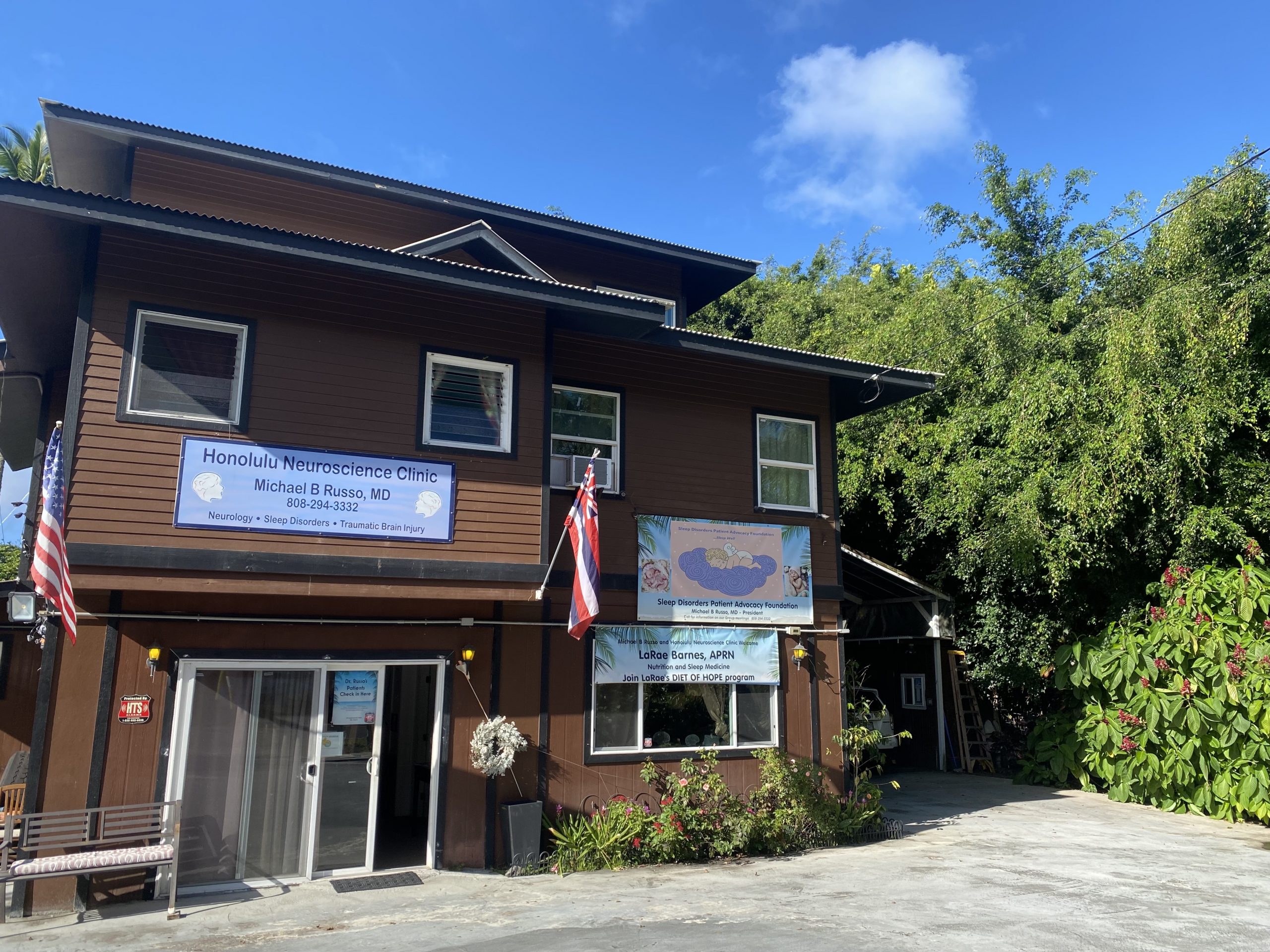
HILO
1335 Kalanianaole Ave
Hilo, HI 96720
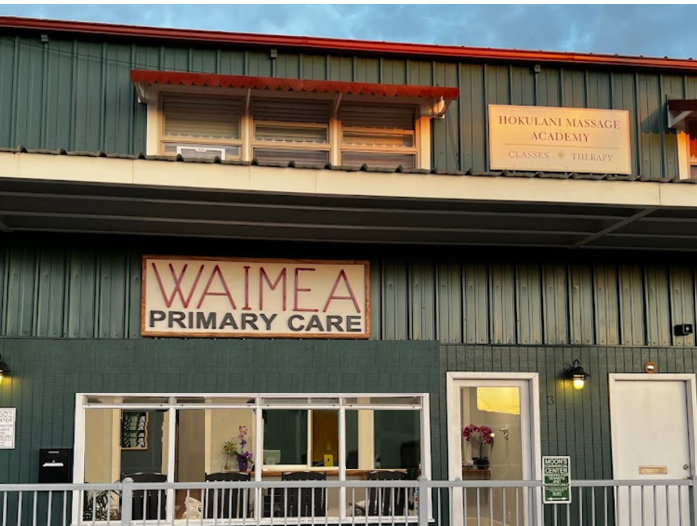
WAIMEA
1298 B
Kawaihae Road – SUITE 3
Waimea, HI 96743
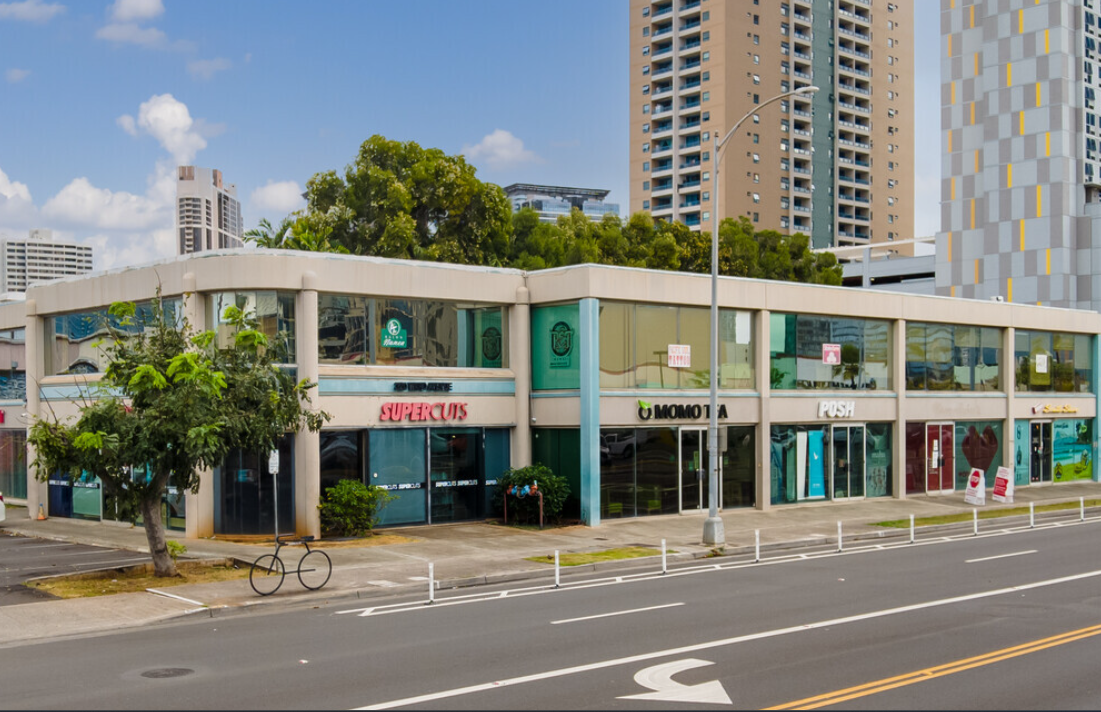
HONOLULU
320 Ward Ave – SUITE 107
Honolulu, HI 96814
